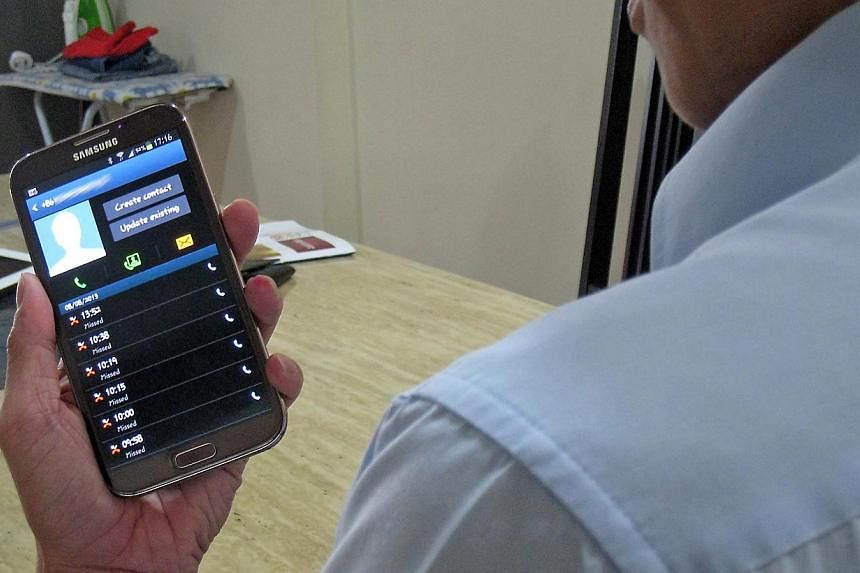SINGAPORE - The Singapore Police Force released its annual statistics on Thursday, which showed that overall crime here rose by 7.4 per cent last year compared to 2013.
The increase was largely due to a surge in cases of cheating involving e-commerce, which more than tripled to 1,659 from 510 in 2013.
Here are examples of more commonly seen cases of online scams.
1. Multiple payment online purchase scam
People pose as sellers of various items, usually electronic gadgets such as smartphones or tablets. These phony sellers will then ask buyers for further payments on the pretext of mistaken delivery orders. Victims typically accede to the request for further payment but end up not receiving the items.
The payments made by the victims are also quickly transferred out of local bank accounts to overseas accounts, making it difficult to trace and return the stolen funds.
2. Phony Paypal e-mail scam
Online sellers may be cheated of sending out goods, after receiving Paypal notification e-mail - which turns out to be fake - from scammers posing as potential buyers.
In such cases, scammers who typically claim to be located overseas place orders with online sellers. The scammers will then send fictitious e-mail, supposedly from Paypal, to notify sellers that payment has been made. Upon receiving the fake e-mail, the victims will then send the items to their overseas addresses.
3. Internet Love Scam
Suspects, who mostly claim to be from the UK, target women searching for love online through dating or social networks such as Facebook and Twitter. Once the suspect befriends the victim, they will correspond through e-mail or phone calls.
In some cases, the suspect will claim he intends to visit Singapore to ask for the victim's hand in marriage. On the supposed day of arrival, he will call to say he has been detained by Customs for carrying excess cash, and ask the victim to transfer funds to secure his release.
In other cases, the suspect will claim to be sending a parcel containing valuable items such as brand-name bags and watches, and the victim will be asked to transfer funds to clear penalty charges on the items.
4. Cyber Extortion
These cases usually have a female suspect who attempts to extort money by threatening to post compromising photos or videos of victims - often male - after an online cyber sex session. The victim is coaxed into undressing and performing indecent acts in front of a webcam. The scammer would video record the act to blackmail the victim.
In most cases, the female suspects are based overseas.
5. Purchase Card/Virtual Credit Scam
Scammers gain access to a person's mobile messaging app account to impersonate him. They will then send requests to buy gift cards to the account holder's friends or family members. These cards are meant for redeeming monetary credits online.
Scammers will then ask the victim's friends and family to send messages or photos containing the redemption codes over mobile messaging apps. Following that, they will redeem all the value of the gift cards before the victims realise their mistake.
6. Kidnap Hoax Phone Scam
The scammers call to claim that the victim's child has been kidnapped, and demand for money to be remitted or transferred as a ransom. They may attempt to convince the victims of their ruse by including cries for help in the background.
The victims are not allowed to speak to their supposedly kidnapped loved ones. Recent cases have also seen scammers demanding victims to transfer the money to a local bank account through the ATM.

